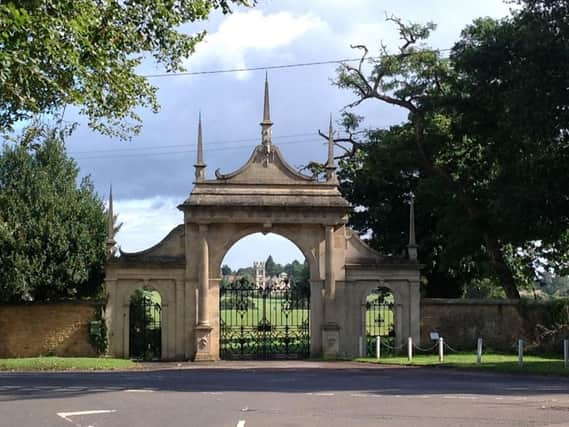How Northamptonshire Robert Lindsay’s care created Red Cross


This week I am celebrating yet another organisation with very close associations with Northamptonshire.
2020 is the 150th anniversary of the founding of The British Red Cross.
Advertisement
Hide AdAdvertisement
Hide AdLet me start by throwing a few names at you, names that ought to ring a few bells. Cricket fans will know Wantage Road; residents in the Abington Park area will know Loyd Road; and everyone’s heard of Overstone!
Let me explain further.
Samuel Jones-Loyd was a brilliant banker and a clever politician. He was regarded as the largest purchaser of land in the country and was described, in 1865, as “one of the wealthiest subjects in the world”.
In 1832, he learned that the manors of two Northamptonshire villages, Overstone and Fotheringhay, were up for grabs and so he grabbed them.
He paid £117,000 for the Overstone estate and settled in the 18th century Overstone Hall with its 40 acres of parkland.
Advertisement
Hide AdAdvertisement
Hide AdIn 1850 he was raised to the peerage as 1st Baron Overstone and Fotheringhay and in 1860 he demolished the existing house and built the Overstone Hall that many may know today.
He had two children, Samuel, who died in 1883, and Harriet, who married a dashing celebrated soldier, Robert James Loyd-Lindsay.
Now this is where it gets interesting!
Robert Lindsay (he added the Loyd on his marriage) had achieved the rank of Brigadier-General and won the VC for his bravery at the 1854 Battle of Alma, the first battle of the Crimean War.
After his marriage to Harriet in 1858 he naturally spent a lot of time at Overstone.
Advertisement
Hide AdAdvertisement
Hide AdAs a wedding present, Lord Overstone settled a huge fortune on the happy couple and gave them one of his many ‘spare’ estates, Lockinge, near Wantage.
In 1870, war broke out between two of England’s erstwhile allies, France and Prussia.
Robert, who had travelled out to see the conflict for himself, was concerned over the suffering the war would cause to both sides, and so, on July 22 of that year, he wrote a letter to The Times.
“England has, before now, marked her sympathy in various wars largely by contributing aid and succour to the wounded on one side,” he wrote, “but any one-sided demonstration would, in this case, be singularly out of place.
Advertisement
Hide AdAdvertisement
Hide Ad“What is done should be done impartially and, above all, systematically.”
The response was immediate and overwhelming.
Robert called together 21 other like-minded statesmen, and the British National Society for Aid to the Sick and Wounded in War was born.
Robert was the society’s founder and first chairman, with Queen Victoria as its enthusiastic royal patron.
After Lord Overstone’s death in 1883, Harriet and Robert inherited Overstone, where they settled.
Advertisement
Hide AdAdvertisement
Hide AdThey never forgot Northampton and were great benefactors. Perhaps their greatest gift came in 1892 when Harriet gave the land for our glorious Abington Park.
In 1895, Robert was created Baron Wantage of Lockinge.
The unwieldy title for the new charity could never gain wide recognition and so in 1905 it was renamed.
The British Red Cross Society, as we know it, was born.